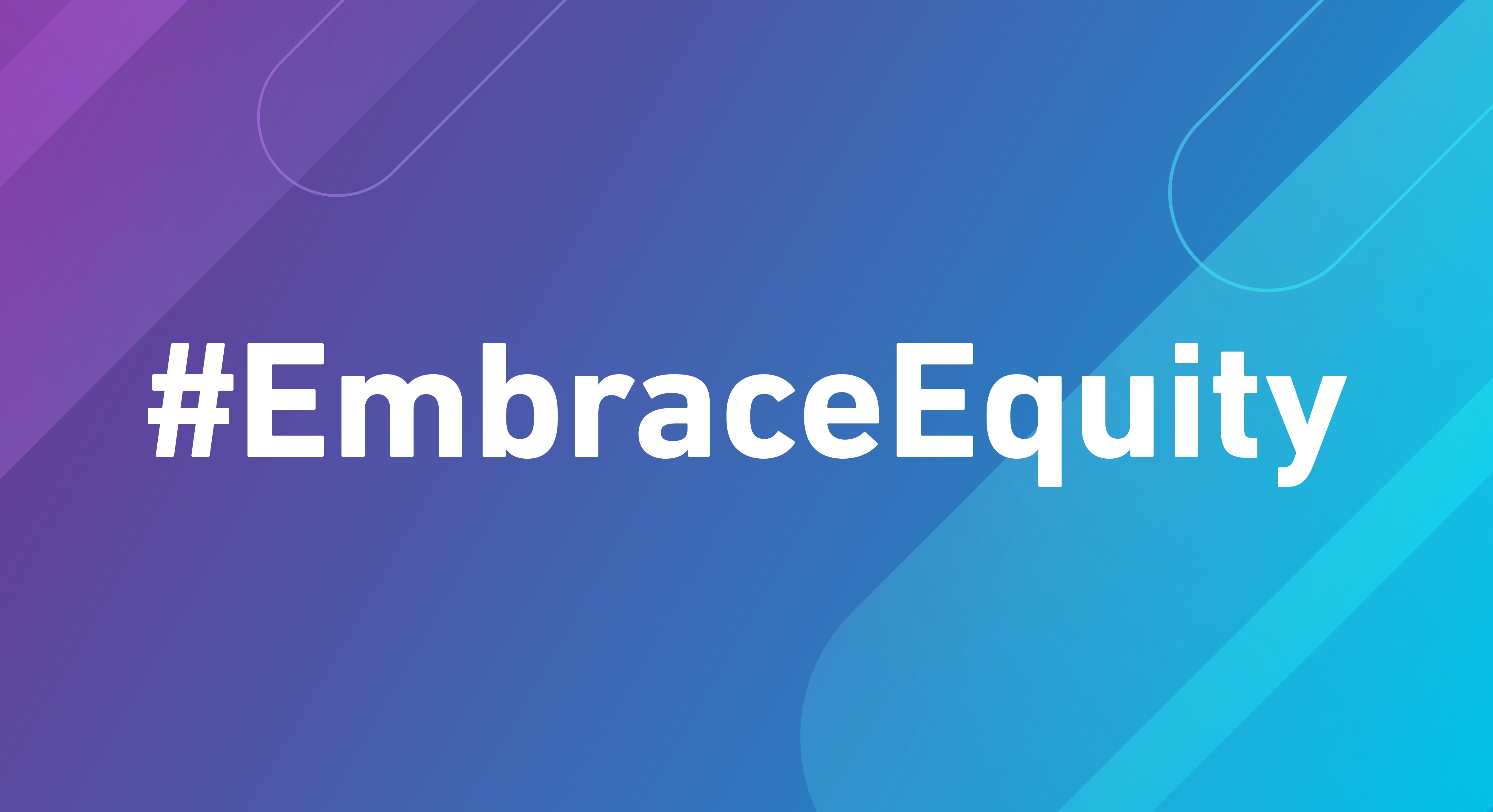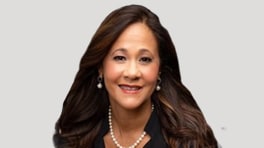Insights
Embracing Equity: Celebrating International Women’s Day

It takes all of us to build a more gender-equitable world.
March 2023
In celebration of International Women’s Day, eight female professionals at State Street examine this year’s theme of “Embracing Equity” and describe how its message resonates with them, both at home and at work.

Olivia Engel
CIO, Active Quantitative Equity,
State Street Global Advisors
The theme “Embracing Equity” inspires me to always be on the lookout for bias or harmful stereotypes, supporting diversity and inclusion everywhere, and acting as an ally. The joy and reward comes with learning about many dimensions of diversity and how I can support inclusion. It is a continuous learning journey; not a destination.
In the workplace, "Embracing Equity” means creating a safe and inclusive environment for all our colleagues, supporting personalized career advancement opportunities, and identifying role models with diverse identities to inspire others. In my personal life, it means examining my behavior, being introspective and seeking guidance to identify my own biases, and role modelling for my children to contribute to an equitable and just society for all.

Jasleen Jaggi
Chief of Staff, Global Markets – Continental Europe
To me, equity is about fairness and justice: ensuring that we consider people’s backgrounds, histories, experiences and needs to create an environment that provides equal opportunities for every individual. This requires us to scrutinize our own beliefs and behaviors, and make an effort to challenge and change the conscious (and unconscious) biases we hold. To ensure fairness, strategies and measures should be developed to compensate for the societal imbalances that prevent women and men from otherwise operating on a level playing field.
Achieving equity in the workplace means recognizing that employees have varying degrees of access to resources and privileges, and that those with less access may need more support to take full advantage of opportunities. Fostering an equitable workplace means cultivating a safe environment that allows for open discussion and understanding, implementing policies and programs that address bias and discrimination, and holding everyone accountable for creating a workplace that is
built on meritocracy. Everyone deserves to feel like they belong at work because of who they are.

Kristine Kaktins
Vice President, Global Security
Employee networks exist to promote equity across State Street. As co-chair of the Massachusetts Chapter of State Street’s Professional Women’s Network (PWN-MA), I have a responsibility toward advancing State Street’s culture of equity, diversity and inclusion. My co-chair, Nathalie Gauthier, our leadership team and I work to ensure that opportunities provided by PWN-MA are available to all our members and allies. We aim to give a platform to unheard voices, collaborate with fellow networks, and offer programs to inspire confidence and advocacy amongst our members. Our goal is to build a network that is welcoming to all, where we support one another and help each other grow. We serve as a bridge across the company. I am proud to be part of a group that strives to actively promote equity and create a better State Street. I encourage all of us to continue find our most authentic way to embrace equity.

Natalye Kennedy
Vice President, Client Experience, Global Head of Client Influence
I felt compelled to really learn the meaning of the term “equity” as a mother of a son with a different learning style. His diagnosis did not mean that he was not smart; it meant he needed additional support to thrive and reach his full academic and social potential, while not being labeled as a “problem child.” For me, “Embracing Equity” means ensuring that my son’s chances of success – as well as those of all Black and brown kids – are not predicated on learning style, race, cultural or economic factors.
In the workplace, many times I have been the only Black woman in the room, which I never considered to be a badge of honor, but rather an opportunity. “Embracing Equity” professionally means being part of employee resource groups to collectively support each other and the greater community, while ensuring I am not the only one who looks like me in the room, and that we all have the opportunity to thrive and be successful.

Chaya Keshavamurthy
Assistant Vice President, Global Client Service Strategic Projects
Equity is very important to me, as it encompasses the idea that everyone deserves – and can access – the same opportunities from a professional and personal standpoint, regardless of gender or background. I am fortunate to work for a company like State Street, where I feel valued as an employee from a diverse background, participate in diversity and inclusion leadership committees, and can make a positive impact within the various global inclusion networks and outreach programs I’m a part of.

Jaya Pandey
Senior Associate, Corporate Information Security
For me, “Embracing Equity” means forging a path of connection with other parents. When my younger son was diagnosed with autism, I didn’t know a single family like ours. This inspired me to build a village for Indian moms and children with special needs. Our community is not your typical support group; it’s a place of empowerment. These women helped make my vision a reality, and it’s been amazing to see our group of more than 275 mothers sing, dance, read, travel, dine, exercise and vacation together.
Throughout the pandemic, I hosted Zoom calls, set up outdoor photoshoots, organized socially distant get-togethers, and have since organized many more gatherings where families could enjoy being together in a no-judgment zone. This year, we started a similar group for dads. I have been blogging about my journey as a means of documenting this experience, and would invite everyone to consider doing your part in creating an equitable experience for families of children with special needs.

Damaris Schneider
Managing Director, Global Delivery Transformation
I am here today because of leaders who embraced equity and supported me throughout my career. These leaders – both male and female – recognized my authentic self as a Latina and as a person who wanted to thrive and be challenged.
While I was still fairly junior, my male supervisor invited me to attend senior leadership meetings, introducing me to other executives and helping me build my network. That experience (and many others) gave me the opportunities and confidence to grow. These leaders and mentors took the time to recognize my hard work and talent, while also focusing on how they could support an ambitious young person on the road to success.
This kind of inclusive leadership builds equity in the workplace by ensuring all employees – regardless of gender, race, ethnicity or physical limitation – have access to advancement opportunities. While I have been fortunate, there's still a lot of progress to be made. Today’s business leaders must deeply embrace workplace equity through mentorship programs, skills and education support, and championing opportunities for people of all backgrounds.

Pauline Wong
Senior Vice President, Head of State Street Hong Kong
I have felt strongly about the meaning of equity since I was a child. Not only did I find it important to be treated fairly, I also tried to be fair in everything I did, from dividing candies and toys evenly between me and my sisters, to sharing project work with classmates.
As I grew up, I learned that being fair is not so simple. To start with, not everyone is born on an equal playing field. Equity has to be executed conscientiously, after taking into consideration each and every circumstance. At work, while we try to be “fair,” there is no standard scale on which we can weigh everyone and everything fairly. The best way to achieve meaningful equity is to be deliberate, respectful and empathetic. This also applies to how we treat the people around us, both at home and at work. It’s an important topic that I’m still practicing and learning more about every day.
Learn more about diversity, equity and inclusion at State Street.



